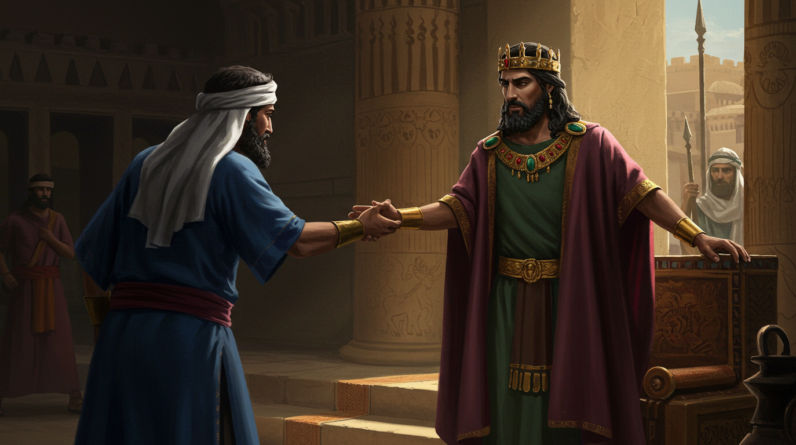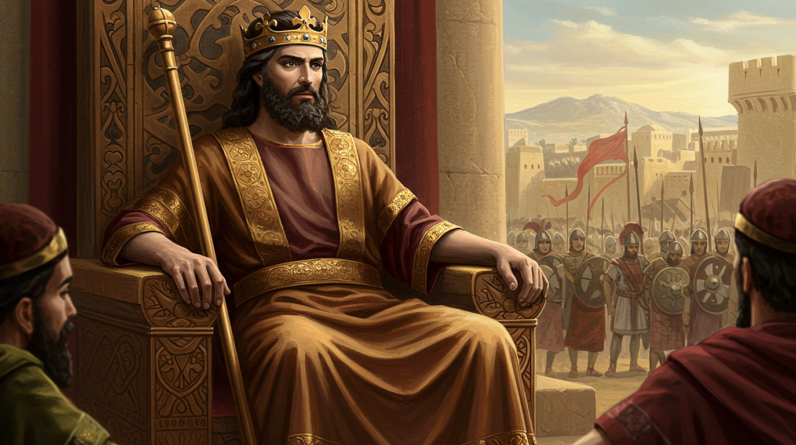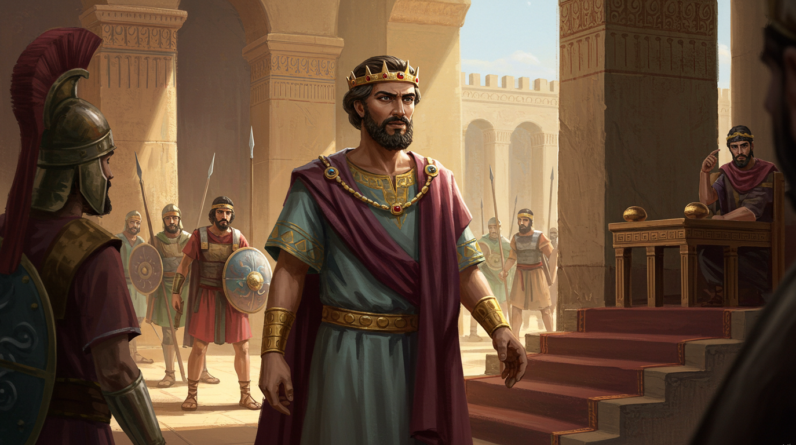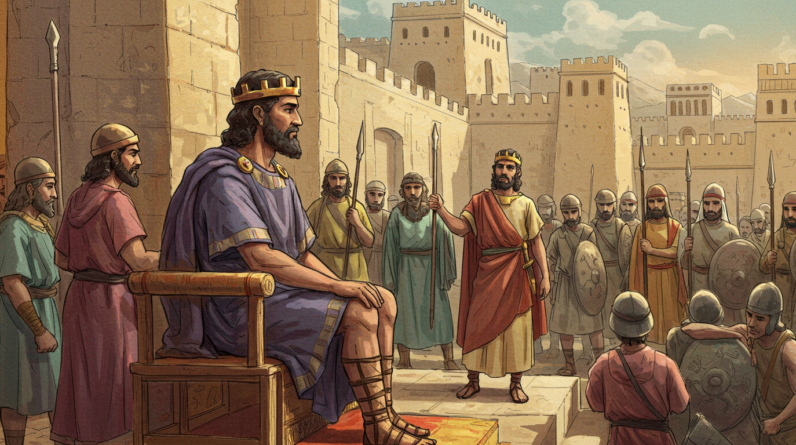Explore Jeroboam’s profound impact on Israel’s leadership, a legacy intertwining strategy and controversy that still influences biblical and historical narratives.
The Lasting Influence of Jeroboam in Israel’s Leadership Narrative
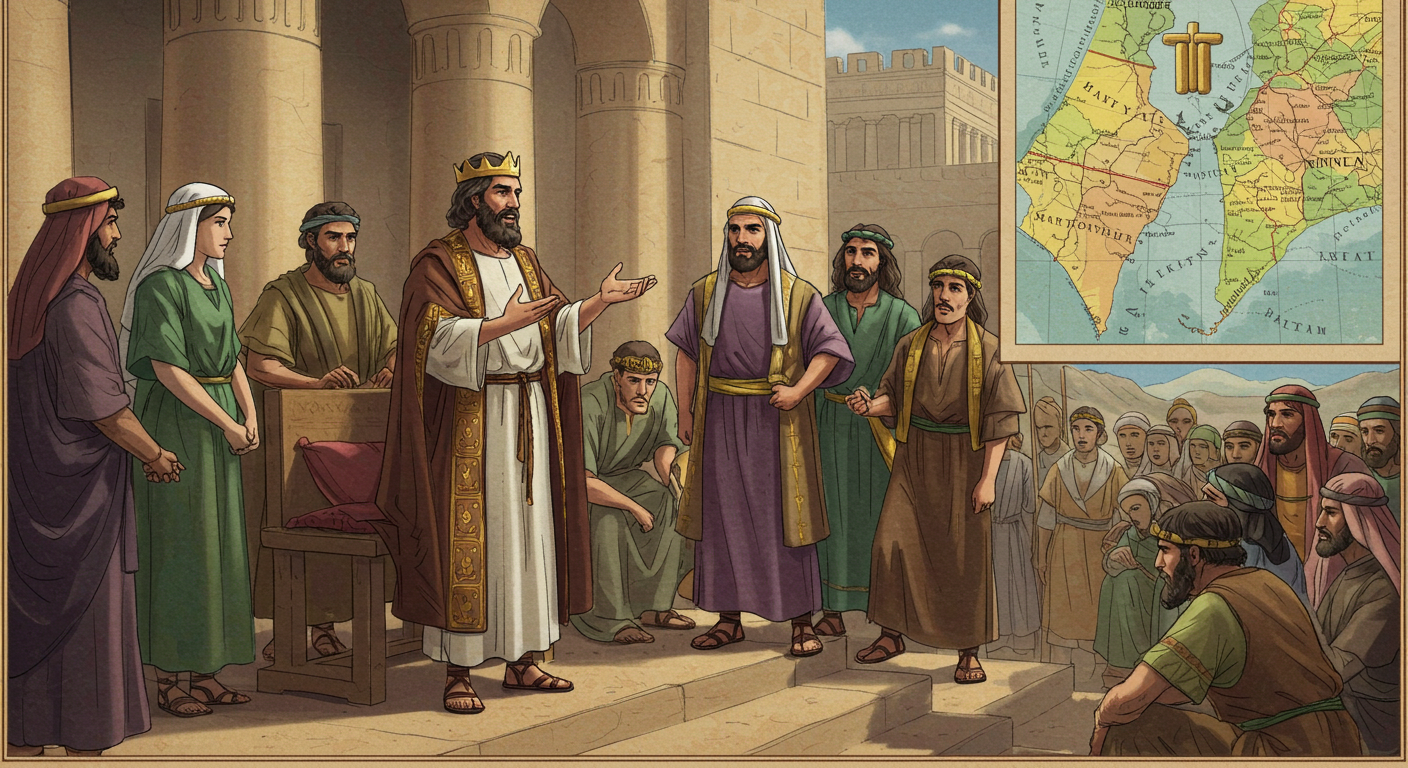
Introduction
Have you ever wondered how one leader’s decisions and actions can echo through the ages, shaping a nation’s identity for generations to come? Jeroboam, the first king of the northern kingdom of Israel, exemplifies this profound impact, carving a legacy that remains a fascinating study for those intrigued by historical and biblical leadership.
Brief Overview
Jeroboam’s ascent to power was both a pivotal and controversial chapter in Israel’s history. As a leader, he stood at the crossroads of unity and division, leaving a mark that resonates within the biblical narrative. His reign was characterized by both strategic ingenuity and spiritual divergence, making him a significant figure in understanding Israel’s socio-political evolution.
Thesis Statement
Jeroboam’s leadership established crucial themes in Israel’s history, where his strategies and decisions triggered a cascade of political and religious shifts. His story provides a rich tapestry of lessons in leadership, consequences, and legacy—serving as a timeless case study on the complexities of governance and identity.
Historical and Cultural Context
Israel in Jeroboam’s Time
The epoch of Jeroboam was a period of profound transformation for Israel. Following King Solomon’s reign, the nation was ripe with tension and division, exacerbated by heavy taxation and labor demands. The societal fabric, stitched together by the unifying thread of Solomon’s wealth and wisdom, began to unravel under the pressure of growing discontent. The nation was divided into ten northern tribes, forming the kingdom of Israel, while the southern tribes remained under the reign of the House of David.
Setting the Stage
Jeroboam emerged from this turbulent backdrop as a formidable leader. Appointed by Solomon to oversee labor, Jeroboam’s early career familiarized him with the inner workings of the kingdom’s administration and its underlying tensions. Propelled by a prophetic encounter and his people’s desire for reform, Jeroboam’s leadership became necessary for the splintered nations seeking reprieve from past grievances and a new identity.
Biographical Overview
Early Life and Calling
Jeroboam’s origins were humble, born into the Ephraimite tribe, yet his abilities quickly propelled him into the sphere of influence. As a young man, he demonstrated exceptional aptitude and ambition, catching the eye of King Solomon. His eventual encounter with the prophet Ahijah marked a turning point, as described in 1 Kings 11:29-31, where he received a divine promise of rulership over ten tribes of Israel. This prophecy set the stage for Jeroboam’s rise against the backdrop of a nation seeking change.
Major Milestones and Events
Jeroboam’s life and reign were punctuated by significant events. His strategic rebellion against Solomon’s successor, Rehoboam, highlighted his tactical prowess and the discontent brewing among the northern tribes, leading to the establishment of the Northern Kingdom as per 1 Kings 12:20. Another defining moment was his introduction of alternative worship centers at Bethel and Dan, reshaping the religious landscape of Israel, recounted in 1 Kings 12:28-30.
Key Biblical Narratives and Passages
Primary Scripture References
Several key passages provide insight into Jeroboam’s narrative:
- 1 Kings 11:26-40 – Details Jeroboam’s rebellion and prophecy about his future rule.
- 1 Kings 12:25-33 – Narrates his establishment of alternate worship practices.
Contextual Analysis
Jeroboam’s story unfolds against the broader narrative of Israel’s search for identity and cohesion. Historically, his reign signifies a shift from centralized worship in Jerusalem toward regional centers, decentralizing religious practices. Theologically, his actions sparked debates about fidelity to the covenant and the legitimacy of leadership diverging from traditional worship practices.
Leadership Qualities and Challenges
Core Leadership Traits
Jeroboam’s leadership was characterized by strategic foresight and adaptability. His ability to rally the northern tribes and establish a new kingdom reflected political acumen and charismatic influence. His decisions, while controversial, demonstrated a pragmatic approach aimed at ensuring his kingship’s longevity.
Challenges and Controversies
However, Jeroboam faced formidable challenges. His introduction of non-traditional religious practices was seen as a departure from covenantal faithfulness, introducing idolatry and leading to widespread theological debates. His legacy became a cautionary tale of leadership marked by both innovation and deviation, echoing through history as a reference point for both wisdom and warnings, as highlighted by scholars who examine his reign’s moral complexities.
Legacy and Impact
Immediate Impact
Jeroboam’s leadership dramatically altered Israel’s historical trajectory. His establishment of the Northern Kingdom initiated enduring ethnic and political divisions, shaping the nation’s future dynamics. The religious shifts under his reign prompted continuous theological discussions and evolutions that reverberated through subsequent generations.
Long-Term Influence
The lasting influence of Jeroboam has transcended his immediate reign, impacting religious thought and governance throughout Israel’s extensive narrative. His legacy, intricately woven into Israel’s story, serves as a lens through which spiritual fidelity and leadership responsibility are assessed, with his name often cited in biblical texts as a moral and spiritual benchmark.
Modern Relevance
For contemporary readers, Jeroboam’s story provides essential lessons on the complexity of leadership amidst change and continuity. His reign serves as a reminder that leadership involves navigating uncharted territories while balancing innovation with traditional values. Today, leaders can reflect on Jeroboam’s narrative as they face dilemmas regarding authenticity, legacy, and influence.
Scriptural and Scholarly Analysis
Comparative Analysis
Jeroboam’s story has been analyzed across various Bible translations, each offering subtle nuances that enrich the understanding of his reign. Comparing accounts from Kings and Chronicles reveals different emphases, such as the divine versus human agency in his narrative, contributing to broader theological discussions about kingship, prophecy, and divine will.
Theological Implications
Jeroboam’s life raises numerous theological questions about leadership, covenant fidelity, and idolatry. Debates among scholars focus on the impact of his religious reforms and their eternal consequences. His narrative thrusts readers into a space of reflection about societal values, divine expectations, and the ethical standards that undergird leadership roles.
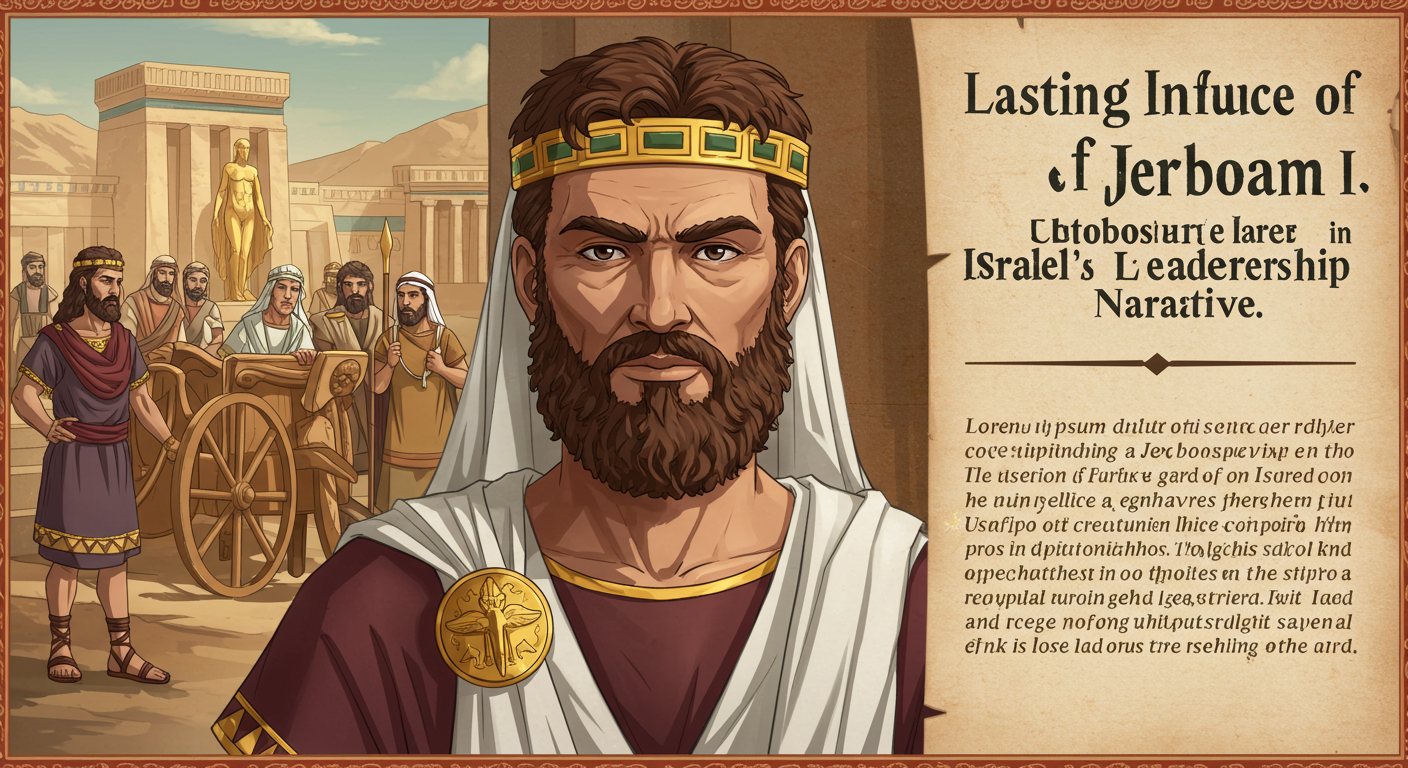
Conclusion
Summary of Key Points
Jeroboam’s narrative offers an intricate portrait of leadership that blends strategic vision and controversial decisions. His reign dramatically shaped Israel’s socio-political and religious landscape, providing lessons on the challenges of leading in transitional periods.
Final Reflections
Reflecting on Jeroboam’s legacy invites contemplation on the enduring significance of leadership within Israel’s history. His journey serves as an invaluable case study on the implications of choices, underscoring how leaders must navigate the complexities of power, influence, and legacy.
Call to Reflection or Action
Acknowledgment: All Bible verses referenced in this article were accessed via Bible Gateway (or Bible Hub).




